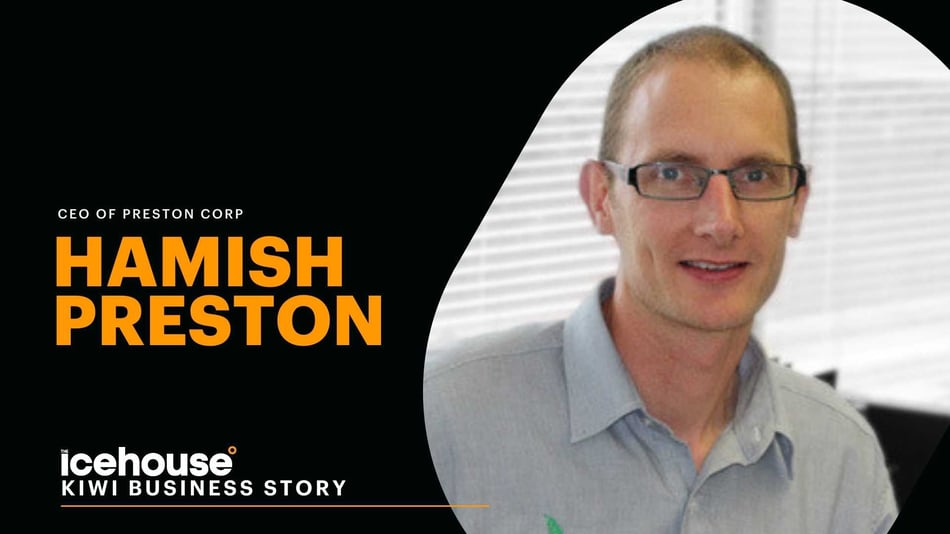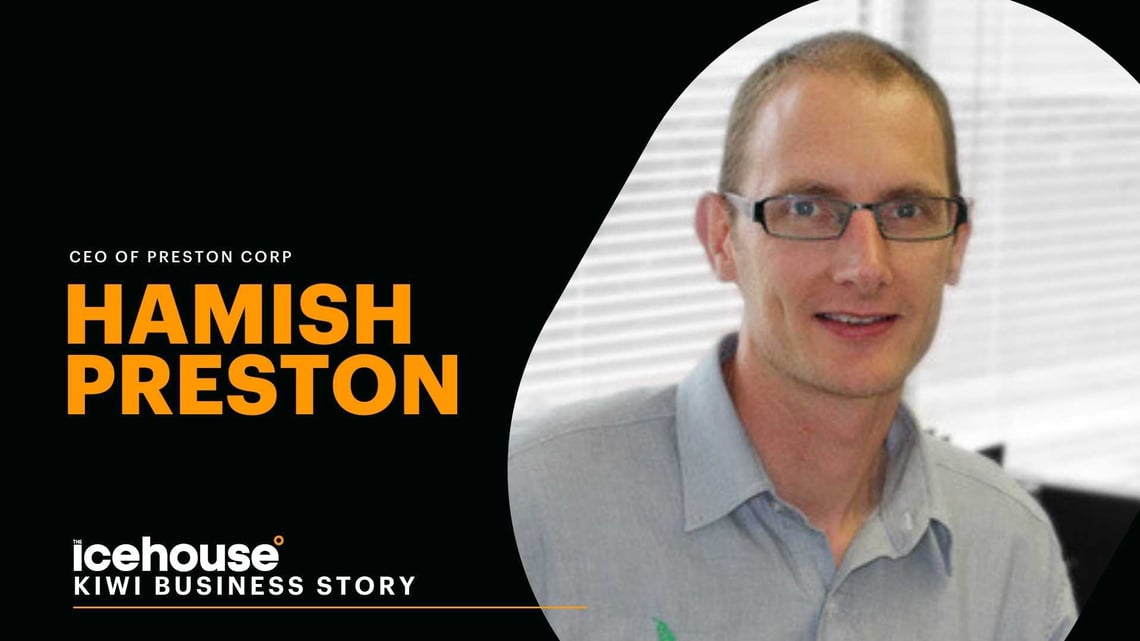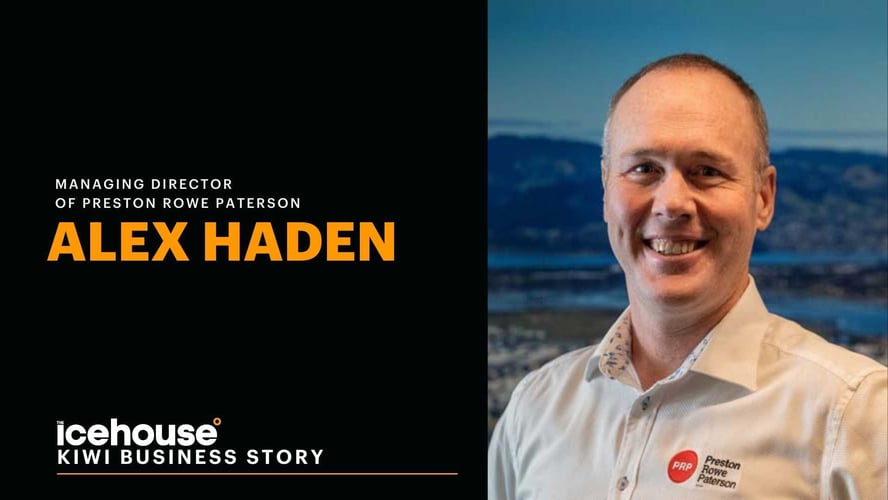Kiwi Business Story: Hamish Preston from Preston Corp

Hamish Preston CEO of Preston Corp, a parent company for Preston’s Master Butchers, Ken Wilson Meats and KAM Transport and Logistics, is an Owner Manager Programme 46 alumni.
This Kiwi Business Story is based on a podcast from 22 June 2022, and all figures quoted are from that time. You can enjoy the complete podcast here.

Tell us a bit about yourself, what your passions are and what life looks like for you?
My name is Hamish Preston, I'm the CEO of Preston Corp. We are a parent company for a few trading companies that we've got that sit under them. I'm fourth generation in the family business. I'm passionate about seeing that live on for future generations as well. I've got three young kids, hopefully they'll get into the business one day at some point, further down the track. I'm just passionate about seeing it continue and grow into the future.
What does Preston Corp do?
Preston Corp is a holding company; we provide Head Office services to our trading companies. Within that we've got Preston's Master Butchers, which is the first of the companies that started in 1904. My great grandfather started that, delivering meat around Wellington, with a horse and a cart. He had about 10 or 12 butcher shops around Wellington and a processing facility and things like that. We have carried that on, and we have got a couple of retail stores now. We have got Ken Wilson Meats, which is a meat selling business, which sells to Preston Master Butchers. Then we have got Kam Transport, transports logistics, supplying transport services. So, it is a big business, we have grown it up over the years and now have over 130 staff.
What's your career journey looked like? How did you jump into the family business from the get-go? Or did you have a bit of a journey to get here?
Everything I did was to try and get out of the family business. From as far back as I remember we were always being pulled in during school holidays to help in the butcher shop and things like that. So, I wanted to escape. After university, I spent 10 years in Japan. I finally thought it was time to get serious about work and settle down and come back home. I was between coming back from Japan and finding my dream job that I started again, working in the family business, and found that I loved it, and I had a real passion for the people and things just carried on from there. So that was 18 years ago now.
What's one thing you wish you knew at the start of the business journey?
The importance of having good people around you. We are extremely fortunate that we have got some great people around us. We make a point of getting to know all our staff, it is a family business. At the end of the day, even though we have quite a few staff members, we still treat it like a family business. We will never go away from that. It is important to me that we are looking after our staff, like we would look after our extended family. The importance of that, we did not have the right people in the right places at the start. But we have shuffled things around and now we have some great people on board.
How did you first hear of The Icehouse? And what led to you saying yes to attending the Owner Manager Programme?
Well, I was new into the CEO role. I was talking with our relationship manager at the bank. I was looking for some sort of training to do and they suggested the Owner Manager Programme. So, I investigated it, and it was a bit of a no brainer, I liked the idea of being focused for three days out of the business, but on your business, with likeminded people, so it was a bit of a no brainer to enrol.
How did you find it? Did you have any key takeaways?
I loved it. We are a mature business. We have a lot of structure and things that they taught in the first part of The Icehouse Programme, we had a lot of that in place already. But it was reassuring to know that what we were doing was best practice and that's what a lot of other businesses were looking to do. The one main takeaway I got was to reach out when you need help. I was sitting in the room with 24 other businesspeople, and the wealth of knowledge in that room was amazing. So rather than sit here and stew on something myself, I can reach out to them as a community and say, look, what would you do in this situation? They are all so willing to offer advice. That's been one of the most beneficial things out of it for me.


